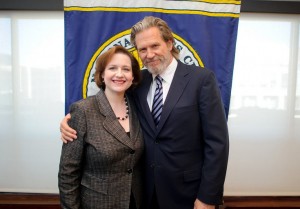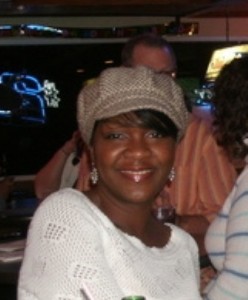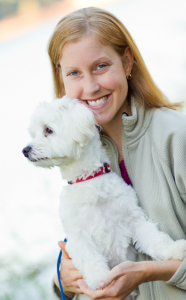 Laura Falacienski started her career as a librarian and took a very interesting path into special events planning at the very prestigious Brookings Institution.
Laura Falacienski started her career as a librarian and took a very interesting path into special events planning at the very prestigious Brookings Institution.
Tell me a little bit about yourself.
I have been the Special Events Manager in the Development Department of the Brookings Institution since July 2004. For the past 10 years I have also worked as a Sunday Reference Librarian at the Alexandria Beatley Library.
My previous job was at the National Press Club Library. I was hired as a Research Librarian in May 1998 and I moved into the Business and Events Manager position in March 1999 when a colleague left. I planned book events such as the annual National Press Club Book Fair with 70 authors, single author book events, wine dinners with cookbook authors, and technology events. I also managed the financial aspects of the library such as billing, classroom rental, library classes, etc. My first job out of college was at the business newspaper, Crain’s Cleveland Business. I was the Editorial Researcher for 4 years. I compiled the ranking lists of various industries, such as Accounting Firms, Public Companies and Private Companies. I also compiled the Going Places, Datebook, and Tax Liens columns.
Why did you decide to attend library school?
I began working at libraries in high school. First as a page during high school and then as a desk clerk at the Parma Regional Library Branch of the Cuyahoga County Public Library system during college. Once I began working at Crain’s I realized that I enjoyed the research aspect of my job and I found that library school was the next logical step in my career path. I attended Kent State Library School while working full-time at Crain’s. After graduating in December 1997 I applied for the National Press Club job and moved to Washington, DC in May 1998.
Can you tell me a little bit about what you do as a Special Events Manager at the Brookings Institution? What is a typical day like for you?
My current job as Special Events Manager at the Brookings Institution, a non-partisan think tank, has given me the opportunity to organize and implement a wide variety of events. I have planned breakfasts, lunches, receptions, and dinners in New York, Washington, DC, Boston, Chicago, San Francisco, and Los Angeles. These events are a benefit for our Brookings Council of donors and are a means for introducing our work to selected prospects and guests. The duties are many and varied in event planning and I am performing all of these duties for a number of events simultaneously.
I coordinate logistics for our two day Board of Trustees meetings, field trips, and our formal Board Dinner, which occurs three times a year. Our May Board meeting is also our annual International Advisory Council (IAC) meeting. We have concurrent sessions with our Trustees and our IAC members and then combined events. The IAC membership is composed of 26 business leaders from around the world. The Washington, DC Board meetings over the past six years have included field trips to the Pentagon, the State Department, the Supreme Court, and the Capitol. We have hosted our formal Board dinners at the Newseum, National Museum of American History, Union Station, the U.S. Chamber of Commerce, the Reagan Building, the Embassy of Italy, and for four years at the State Department Diplomatic Reception rooms.
I was able to use my knowledge and techniques of working on Board meetings in DC and apply it to taking our Board meetings outside of the Beltway. In the past few years we have hosted Board meetings in Las Vegas, Charleston, SC, and Miami. Our Las Vegas meeting included a welcome reception, a Board meeting, various committee meetings, roundtables, lunch and a presentation at Spago at Caesars Palace, a panel discussion at UNLV, viewing of the Democratic Presidential Candidate debate at the Cox Pavilion at UNLV, and dinner and a show at the Mirage. The Charleston, SC meeting included a welcome reception at our Chairman’s home, a Board meeting, various panel presentations including one with Governor Sanford, committee meetings, lunch with the Mayor Riley, a formal Board dinner at the Old Exchange, and an informal oyster roast. Our Miami Board meeting included a Board meeting, committee meetings, lunch with Mayor Diaz, dinner with the President of Costa Rica, and a lunch with the President of the University of Miami, Donna Shalala.
My work experience has been enhanced by my coursework toward my certificate in Meeting, Event & Exhibition Management from Northern Virginia Community College. I also completed a number of courses through the Event Management Certificate Program at George Washington University. I obtained the industry standard, Certified Meeting Professional (CMP) designation in March 2009 and took a CMP Prep Course to further my knowledge and mastery of event practices and operating principles. With this knowledge I am the technical authority of events at Brookings and I am often called upon to assist other event planners in other departments.
Your career took you to a very interesting place, and with a very interesting job. While an MLS is not a prerequisite for that position, how has that degree helped you in your current role?
Having a library degree has proved helpful in all of my jobs. I know which databases to use to research prominent speakers and I know where to look when I am researching vendors and venues for events.
Can you speak about some of your more memorable events…and some of the exciting people you get to meet?
At Brookings we have featured many VIPs as speakers during our Board meetings including: Sen. John McCain, Sen. Joe Lieberman; House Majority Leader Eric Cantor; Supreme Court Justice Stephen Breyer; Secretary of State Hillary Clinton, former Secretary of the Treasury Henry Paulson; former Speaker Nancy Pelosi; and former Secretary of State Condoleezza Rice to name a few.
My six years at the National Press Club provided me with a vast array of special event experiences from single author book events, book raps/wine dinners, Book Fairs with over 70 authors, to a full scale trade show. I directed the National Press Club Author Rap series and the Cyber Cocktail series of technology forums and exhibitions. I coordinated events with such VIPs as Norman Mailer, Dan Rather, Tom Brokaw, former Secretary of State Henry Kissinger, Secretary of State Madeleine Albright, Queen Noor, J.K. Rowling, David McCullough, Kirk Douglas, Gore Vidal, Senator Arlen Specter, Senator Bill Frist, Mayor Michael Bloomberg, Governor Mario Cuomo, and John Kenneth Galbraith.
What do you like most about your job?
I enjoy travelling to New York and other cities to staff events. Another aspect of the job that I enjoy is meeting and interacting with our Trustees and donors. They are prominent members of the business community and it is interesting to read about them in the newspaper or Vanity Fair and then interact with them at events.
 Tell me a little bit about yourself.
Tell me a little bit about yourself.


